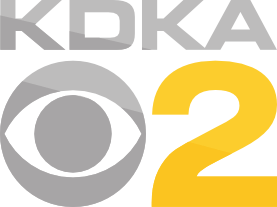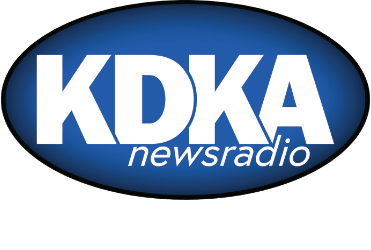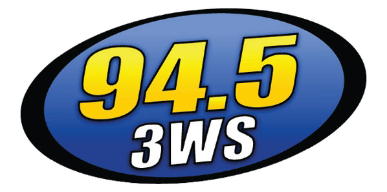Brian Quaranta discusses questions that you should ask yourself and your advisor to see if you’re truly ready to retire.
To see a full schedule of our radio airtimes, please click here.
Radio Show Transcript
Announcer 00:00
Information provided is for illustrative purposes only and does not constitute investment tax or legal advice information has been obtained from sources that are deemed to be reliable, but their accuracy and completeness cannot be guaranteed. Neither Brian Quaranta nor his guests are liable for the usage of information discussed always consult with a qualified investment legal or tax professional before taking any action.
And now, Retirement You Radio.
Asset protection tax reduction, holistic planning
featuring Pittsburgh’s wealth, financial, and income coach Brian Quaranta.
Steve 00:38
Welcome everybody this is Retirement You Radio increasing your financial IQ with BrianQ, Brian Quaranta of course who we’re talking about. Today, we are going to dig into some things that everybody needs to talk about. And that is questions to ask yourself or questions to ask your advisor. Am I ready to really retire? We’re gonna get into that and a whole lot more. What do you think, Brian?
Brian Quaranta 01:00
That’s right, Steve, how do you know if you’re ready to retire on today’s show? We’ve got seven questions to ask yourself to see if you’re truly ready to ride off into the sunset. We come right back on the radio.
Steve 01:11
You can get a head start, folks. It’s 800-656-8616 800-656-8616. Yes, it all gets underway right after this. Welcome, everybody, this is Retirement You Radio, increasing your financial IQ with BrianQ. Brian Quaranta is here. He is an author, he’s president and CEO of secure money advisors. He is a fiduciary, over 20 years in the business, you tick off all the boxes. What’s going on? Brian? How are you?
Brian Quaranta 01:50
Steve? How are you this weekend? Let me ask you this. How do you know when you’re ready to retire? Do you know? You know, a lot of people tell me they don’t. And the reason is, is because I don’t think a lot of people even understand how to retire. Well, you know-
Steve 02:02
No, you’re right. Because it’s I mean, it’s uncharted territory. None of us have been there until you get there.
Brian Quaranta 02:08
Yeah, I mean, I guess the real question you have to ask yourself is how much more do I have left in the tank?
Steve 02:14
How many more days? Do I want to drag my butt into this place? Right.
Brian Quaranta 02:17
Right. I mean, you know, retiring at 65. You know, maybe the thing of popular culture. But you know, it’s far from a hard and fast rule. And, you know, if you look at how much long you know, how long people are living these days, you know, retiring at 65 could mean being retired nearly as long as you spent in your career. I mean, think about that.
Steve 02:39
That’s a long time to be unemployed.
Brian Quaranta 02:43
Yeah, yeah. And, you know, you go, Wow, what a monumental task in front of people, right? Because you go back 30-40 years ago, if you want to retire at 62, or 65, it was pretty simple to do, because you probably retired with a pension. And, and you had a Social Security check. And for most people, that was going to be enough money for them to get through retirement. And of course, you know, if the cost of living went up, or they needed any additional money, the money that they had saved, and any type of retirement account, or maybe just some money at the bank, they didn’t even have to worry about rolling the dice with that money and gambling with it. Because a lot of people would just go down to the bank and buy a bank CD, you know, for 50. You know, heck, I think they were like, 10-15%, you know, back then I don’t know if you remember those rates, but I do. Yeah, you know, so. So, if you had an extra $200,000 laying around, and let’s say you could go to the bank and get a 10% CD, I mean, that’s an extra 20 grand a year in income. So, you know, if you want to remodel the kitchen, or you want some extra money for vacations, or even if you just wanted to save and accumulate some money for later on down the road, when the cost of living went up, you were fine. You know, you can’t do that today. I mean, today, you gotta roll the dice with the money and, you know, cross your fingers and hope for the best but, you know, I think the other thing really is it comes down to you know, whether or not even love your job. You know, I mean, you know, a lot of people tell me, look, I still love what I do. And I’m really not ready. A lot of people will tell me that they’re burnt out on what they’re doing. They’re not sure if they’re ready to retire. But I’ll tell you that peace of mind you get when you focus on determining whether or not you’re on the right track and building a system around, you know, the fundamentals of retirement planning is it really puts you in a position of strength, because, you know, if you’re close to retirement, you want to know that you’ve already figured out what retirement looks like mathematically from an income perspective, and what it’s going to look like, you know, when you do stop working in a paycheck stopped, you want to know confidently that you’re going to be able to replace that paycheck. And that really puts you now in a position of strength because you know, the day you walk in, and, you know, somebody rubs you the wrong way. You know, you already got it figured out that you can get right out of there.
Steve 04:59
But thats the importance of, as you said too, it was, you know, 5 to 10 years before you get to that spot. That’s when you need to sit down with someone like you and map this out.
Brian Quaranta 05:06
Well, that’s right. That’s why we created the Right Track Retirement System. You know, and the reason I created that is because that’s the number one question we get all the time is, Brian, am I on the right track? Am I doing the right things in my you know, do? Do I have the right investments? Or do I have enough saved? Should I be putting more money in my 401k? Should I be paying off debt? What should I be doing? What things would determine whether or not I’m on the right track? And, you know, determining whether or not you’re on the right track five or 10 years prior to retirement is much better than finding out that you’re not on the right track that you want to retire? Right? Right, of course. But, you know, I think the other thing too, Steve is really having a purpose after work I’d be so what will I do in retirement is a big question that most people have to ask themselves. And for many people, their identity is wrapped up in what they do for a living, you know, and if you think about it without a structured workday, it’s not uncommon to feel unmoored in retirement. I mean, I’ve had, you know, some people that have not done well, in retirement, my father included, I think my father is retired three times.
Steve 06:16
Yeah, well, that’s not uncommon, really. But with the right plan that can be you know, minimized.
Brian Quaranta 06:22
Yeah, I mean, some people just, you know, they identify what work they always have done work. They don’t really have a whole lot of hobbies outside of work. That was certainly my father. So, when he retired the first time, you know, he, you know, after the honey to-do list was completed. I mean, he really, he just wasn’t feeling fulfilled. So, he just went back to work. And then he thought he was ready to retire again, he did it, and then he’s back to work again. But I have clients that do that. And that’s okay. That’s okay. But for a lot of folks, you know, your retirement will be a lot more gratifying if you’re retiring to something rather than retiring from something.
Steve 06:56
That’s really key, isn’t it?
Brian Quaranta 06:58
Yeah. Yeah. Yeah, you got to have a purpose going into retirement. You know, and, you know, some people will say, Look, I just met, or they might say, look, I want more of a hybrid retirement where I’m just kind of burnt out on what I’ve been doing, I don’t mind continuing to work, I feel like I’ve got some energy left. And I can continue to contribute. But I really just don’t want to do what I’m doing anymore. And that’s really where that Right Track Retirement System comes in Steve, and, you know, on today’s show, as we do on every show, for the next 10 callers who call in right now, we are going to create that one-page financial review for you, which is the Right Track Retirement System, it focuses on five key areas, folks, it’s income, investments, taxes, health care, and legacy planning. If you can make sure that every i is dotted and every T is crossed in those five key areas, that’s really what’s going to determine whether or not you’re on the right track. And we do this at no cost, no obligation. We’ve seen others charge up to $1,000 or more for similar features or offers. But again, we do this review with you at no cost. And for the next 10 callers who call in, we are going to give you this Right Track Retirement System. And it’s what it’s going to really consist of most importantly, is just taking that mystery out of financial planning, by helping you map out where you are right now and where you need to go. And that’s the most important thing. In order to understand whether or not you’re on the right track, you got to first understand where you’re at. And that’s what we’re going to help do. When you first come in, we’re going to listen to you, we’re going to understand what your goals are. We’re going to look at what you’re currently doing. And we’re going to find out, is this the appropriate place to get to where you want to be. Now, how nice would it be for you just to have confirmation that you are doing the right things? But if you’re not doing the right things, when would you want to know that? When would be a good time to know that? sooner than later. That’s right. So again, folks, for the next 10 callers who call in right now that’s the right track retirement system focused on five key areas income investments, taxes, health care, and legacy planning. We’re going to do that at no cost. And again, it’s going to take that mystery out of financial planning, we’ll look at taxes. We’ll talk about customized income planning through proven strategies, which literally can turbocharge your retirement. So again, for the next 10 callers, that’s a comprehensive financial review at no cost to you the Right Track Retirement System, get it today, folks, you’ve got to do your part. You can’t procrastinate. Don’t kick the can down the road. You’ve got to get up, pick up the phone, call our office, and schedule that time to talk to one of our advisors
Steve 09:13
800-656-8616, That’s 800-656-8616 you’re gonna get that comprehensive financial review showing you where you are today, of course, but most important, you’re going to get that roadmap that we talked about, the guide that’s going to help get you to where you need to be when it comes to retirement 800-656-8616 That’s 800-656-8616 you can also text Brian direct, he’d love to hear from you. Text BrianQ all one word to 21000 text BrianQ to 21000.
Brian Quaranta 09:44
Are you on the right track? How do you know if you’re ready to retire? That’s what we’re talking about on today’s show. And again, we’re talking about seven questions to ask yourself to see if you’re truly ready to ride off into the sunset when we come back right here on Retirement You Radio.
Steve 10:03
We are back on Retirement You Radio with Brian Quaranta. It’s really increasing your financial IQ with BrianQ, it does come down to education, doesn’t it, Brian? I mean, knowing the pieces of this puzzle, and having you put them together for us is really critical.
Brian Quaranta 10:19
Well, it is, it’s very important. And I think education is the key to really build a successful retirement plan. Because look, there’s a lot of noise in the marketplace. We all know that. And, you know, my life is very similar to the fact that, you know, if you have a question about anything, I mean, you can go on, you know, you can search in Google, and you can find out, you know, tons of information about specific topics. But if it’s, if it’s a topic that you’re rather a novice in, or maybe an intermediate, it still can become very confusing, because there’s so much noise as far as what you should do, how you should do it, the timing to do it. You know, we just have successfully retired, you know, over 1200 people. So, we’ve got a pretty darn good track record of what the best practices are on how to get from point A to point B.
Steve 11:03
Absolutely. And so, as we get there, I mean, we, we covered just a couple of the questions. And you know, some of them weren’t about money, but this one is about money. How do I know if I’ve got enough? How do I know, to spread it out? How do I do that?
Brian Quaranta 11:17
Yeah, that’s probably that’s probably the number one question, right? Do I have enough money to retire? And before we address that, there are three key interest rates that you have to figure out; one is called your spend down rate. So, the interest rate that you would need to generate the amount of monthly income that you would want and spend your money down to zero, that’s called our spend down rate. So what rate of return would you need to do in order to spend your money down to zero, let’s say by the age of 95, or 100. The second rate of return that you’ve got to figure out is what we call your preservation rate. So that would mean if you need to generate retirement income off of a certain retirement account, what rate of return do you need to do to take the money out that you want to take out and also preserve the principal at the same time. And then of course, the third one we look at is what we call the legacy rate. And this would be the rate of return that you your portfolio needs to do in order to take the money that you want to take out but still see the money continue to grow. But do I have enough money is really the number one question that you really have to ask yourself. And this is the most obvious question and certainly needs to be addressed and refer number to what you do will impact how much money you’ll have and need, have you saved enough. Your advisor can help you see really the big picture and help you ensure the money will last the rest of your life. And that’s the most important thing is that the biggest fear for most retirees, Steve, according to AARP, they interviewed about 1000 people and they asked What do you fear most running out of money, or death. And you know, over 90% of the people that they surveyed said that they fear running out of money more than they feared death alone. And that’s because people have not figured out mathematically what they’re going to be able to generate as far as income goes, what return they’re going to need, what their spend down rate is, what their preservation rate is, what their legacy rate is, once you mathematically determined those numbers now you start to really start to have a sense of confidence of when this really can happen and how it can happen. Remember, folks, when you shift into retirement, it’s not so much about accumulation of assets anymore, as it is about the distribution and preservation of those assets. When you shift into retirement, you’re more concerned with the return of your money, more than you are the return on your money, right. So, and the reason people are running out of money is there is they’re not running out of money because they’re getting the wrong rate of return. They’re running out of money because they’re losing money at the wrong time. And imagine you take somebody 2007 2008 They just retired or maybe they’re two years in retirement, and the market goes down and they lose 30%. Losing money at the wrong time in retirement can impact whether or not your retirement is successful. It’s something called sequencing risk, which we talk a lot about when you come in, and we teach you how to mitigate that risk a little bit more. The other big question, though, is how will you pay for health care?
Steve 14:02
That is the elephant in the room? Isn’t that I mean, boy, it’s, I mean, it’s a big deal.
Brian Quaranta 14:08
Yeah. And in Pennsylvania, we have something called Penny, which is our own health insurance marketplace. And, you know, for a while before we had our own health insurance marketplace in Pennsylvania, we had the federal marketplace. But you can also go direct through, you know, the carriers like UPMC, or Allegheny Health Network, you can go directly with them and buy your insurance directly through them. Or you can go to Penny which is the state health network that you can go to just like the federal network that you can go to purchase health insurance. But you’ve got to look at what that expense is going to be. It can you know, depending on your age, it’s going to determine the price and you know, what type of plan do you want. Do you want one that’s really going to take care of all the costs? Are you going to have a high deductible plan? But those costs need to be worked into the retirement plan and healthcare is most retirees largest expense, yet it’s that many people don’t adequately plan for that expense. And that really is key to making sure that you’re on the right track. And that’s what that Right Track Retirement System will do. When you come in and we sit down with you, we’re going to walk through, remember, number four out of the five key areas that you need to focus on is health care. And we talked about those costs and how that’s going to impact you. And what we need to do to make sure if you want to retire before the age of 65, that we work into that cost that you’re going to need to set aside for that health insurance cost.
Steve 15:35
Right? I mean, filling that gap, if you are fortunate enough to be able to retire before 65, that that is a really important key. And oftentimes people decide, well, then I’m just going to keep working. Yeah. And insurance, you know, yeah.
Brian Quaranta 15:46
Yeah, because if you retire before 65, you need to think about obviously, how you’re going to pay for the health insurance before Medicare kicks in, you probably have the option to buy Cobra from your previous employer. But those policies can be pricey. And they’re only going to last for about 18 months. So eventually, you’re going to have to go to the marketplace and purchase it. So, what will you do for insurance until you’re eligible for Medicare is the big question that we have to answer. And again, the right track retirement system is going to help address those. And Steve, as we always do on every show for the next 10 callers who call in right now, we are going to create that one-page financial review. I’ve seen others charge up to $1,000 or more for similar features or offers. But we’re going to do this at no cost and no obligation for you. Like I said earlier, it focuses on five key areas, income investments, taxes, healthcare legacy planning, it’s going to give you a clearer understanding of where you are and where you need to go. It’s also going to give you confirmation of whether or not the things that you’re doing right now are on the right track. And if you are on the right track, isn’t that going to give you peace of mind knowing that you have been doing the right things? But if you’re not on the right track? When would you want to know that probably now, right? Probably now would be a good time. So again, we’re going to talk about taxes. We’ll talk about how to create a customized income plan with proven strategies that can literally turbocharge your retirement income. In short, the Right Track Retirement System is just going to take the guesswork out of financial planning again for the next 10 callers who call in right now. That’s it no cost, no obligation, the right track Retirement System, folks, you have to do your part though. You need to call in you can’t continue to kick the can down the road. Procrastination is the worst thing you can do as you’re approaching retirement, pick up the phone, call our office, schedule a time to come in. The appointment process is very simple, easy, there’s no pressure, you’re gonna give a real clear understanding of where you are and where you need to go.
Steve 17:28
800-656-8616 That’s the number to call folks. 800-656-8616 you heard Brian the next 10 callers get that comprehensive financial review, all the extras that go along with it, no cost no obligation, and when you walk out yes, you will have that retirement roadmap that can really help get you to where you need to be. You’ve got nothing to lose. Give us a call, 10 callers right now. 800-656-8616 again 800-656-8616 Better yet, text Brian direct, it’s BrianQ all one word, BrianQ to 21000.
Brian Quaranta 18:01
Until next week, we’ll see you again right here on Retirement You Radio.
Announcer 18:10
Information provided this for illustrative purposes only and does not constitute investment tax or legal advice. Information has been obtained from sources that are deemed to be reliable, but their accuracy and completeness cannot be guaranteed. Neither Brian Quaranta nor his guests are liable for the usage of information discussed. Always consult with a qualified investment legal or tax professional before taking any action.








